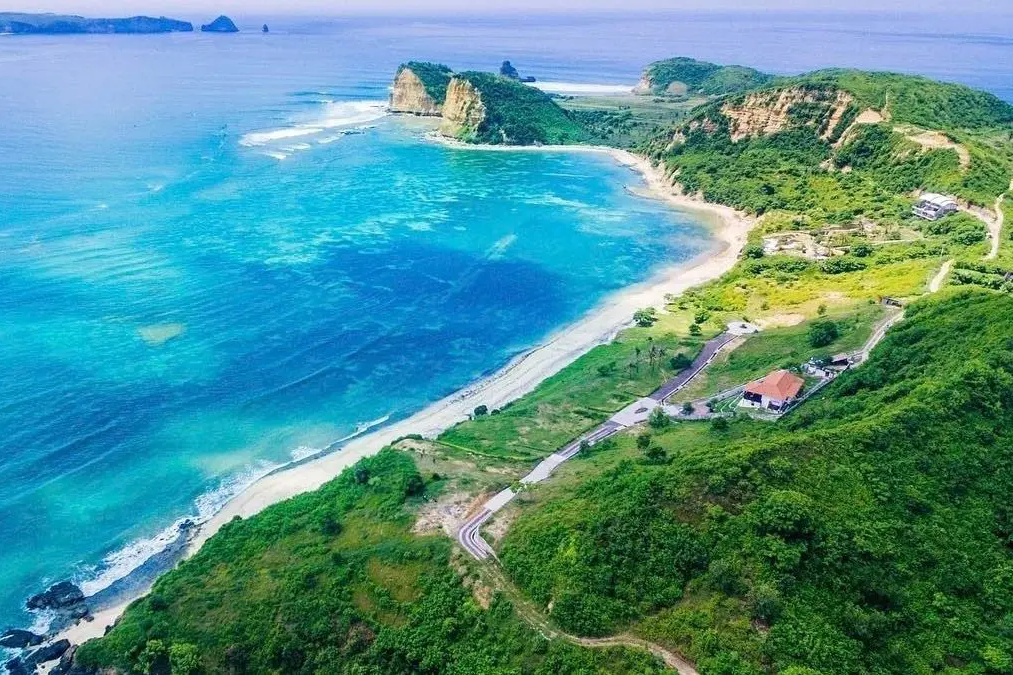Last Updated on August 3, 2024 by Yasmina
Bali has become a hotspot for digital nomads and remote workers, thanks to its beautiful landscapes, vibrant culture, and affordable cost of living. If you’re considering moving to Bali, this guide provides all the essential information to live in Bali and work remotely successfully.
Table of Contents
Why Bali?
Bali offers a unique mix of beauty, cultural richness, and modern amenities, making it an ideal destination for remote workers. Bali is a highly popular destination for digital nomads. Its stunning beauty will captivate you, making it hard to depart. It’s an ideal place for a brief sightseeing visit, a longer working holiday, or even contemplating a prolonged stay.
Here are a few reasons why Bali stands out:
1. Beautiful Environment:
- Scenic Landscapes: From beaches and rice terraces to volcanoes and waterfalls, Bali offers a picturesque setting for living and working.
- Cultural Heritage: The island is rich in culture, with numerous temples, festivals, and traditional arts.
2. Affordable Living:
- Cost of Living: Bali is relatively affordable compared to Western countries, with lower costs for accommodation, food, and transportation.
- Variety of Options: Whether you prefer luxury villas or budget-friendly guesthouses, Bali has something for everyone.
- In terms of cost, Bali is roughly 40% more affordable than the United States overall.
3. Digital Nomad Community:
- Coworking Spaces: Bali is home to numerous coworking spaces that cater to remote workers.
- Networking Opportunities: The island has a thriving community of digital nomads, offering plenty of opportunities for networking and collaboration.

Visas for Remote Workers
To live and work remotely in Bali, you’ll need the appropriate visa. While there have been discussions about introducing a five-year digital nomad visa for Bali, the approved visa will only permit remote workers to remain for 60 days. This initial visa can be extended twice, allowing for an additional 60 days each time. It’s important to note that this is not a multiple-entry visa, so if you depart the country, you will need to reapply to return.
Bali is already a sought-after destination for remote workers. However, the current visa regulations do not accommodate longer stays. With the recent introduction of the digital nomad visa, Bali aims to attract more international travelers who intend to stay for extended periods, ultimately fostering more sustainable tourism on the island.
Here are the main visa options with their applicable restrictions:
1. Tourist Visa:
- Validity: 30 days, extendable for another 30 days.
- Restrictions: Not suitable for long-term stays or working remotely.
- Single-entry Tourist Visa costs $50.
2. Social/Cultural Visa (B-211):
- Validity: 60 days, extendable up to 6 months.
- Requirements: Requires a local sponsor and approval from immigration.
- Suitable For: Medium-term stays and remote work.
- The Social/Cultural Visa (B-211) costs $650
3. Business Visa (Single or Multiple Entry):
- Validity: Single entry up to 60 days, extendable; multiple entry valid for 1 year.
- Requirements: Must be sponsored by an Indonesian company.
- Suitable For: Business-related activities and remote work.
- Multiple-entry Tourist/Visit/Business Visa costs $100
4. Temporary Stay Permit (KITAS):
- Validity: 6 months to 2 years, renewable.
- Requirements: Requires sponsorship, can be for work, retirement, or family reunification.
- Suitable For: Long-term stays and remote work.
Cost of Living in Bali
The cost of living in Bali can vary depending on your lifestyle and location. Here’s a breakdown of typical expenses:
1. Accommodation:
- Budget: $300 – $700 per month for a basic apartment or guesthouse.
- Mid-Range: $700 – $1,500 per month for a furnished villa or apartment with amenities.
- Luxury: $1,500+ per month for high-end villas and luxury accommodations.
2. Food:
- Local Meals: $1.50 – $3 per meal at local warungs (small eateries).
- Western Meals: $5 – $15 per meal at cafes and restaurants.
- Groceries: $200 – $400 per month.
3. Transportation:
- Scooter Rental: $50 – $70 per month.
- Taxi/Ride-Share: $2 – $10 per trip.
- Car Rental: $300+ per month.
4. Utilities and Internet:
- Utilities: $50 – $100 per month.
- Internet: $20 – $50 per month, depending on speed and provider.
Taxes for Bali Digital Nomad Visa
Currently, travelers can choose between obtaining a tourist visa for a maximum of 60 days or going through a complex legal process to get a temporary work permit that lasts for six months. If you stay in Indonesia for more than 183 days in a year, you will be considered a local tax resident and will need to pay Indonesian tax rates on any income earned.
Visitors using the B211a Business Visa generally won’t need to pay taxes since the visa is valid for less than 183 days, but there might be exceptions if you plan to live in Indonesia. If you become a new tax resident in Indonesia, you may be eligible for an additional tax benefit. During the first four years of being a tax resident, you may only have to pay tax on your income sourced from Indonesia, but there are specific conditions that apply.
Tips for Digital Nomads in Bali
1. Stay Connected:
- SIM Cards: Purchase a local SIM card with a data plan for reliable mobile internet.
- Internet Cafes: Use internet cafes and coworking spaces for stable connections.
2. Embrace the Culture:
- Learn Basic Bahasa Indonesia: Knowing some local phrases can enhance your experience.
- Respect Local Customs: Be mindful of local traditions and dress modestly in temples.
3. Stay Healthy:
- Health Insurance: Ensure you have comprehensive travel health insurance.
- Local Clinics: Familiarize yourself with nearby clinics and hospitals.
4. Manage Your Finances:
- Local Banks: Open a local bank account for easier transactions.
- ATMs: Use ATMs affiliated with international banks to avoid high fees.
FAQs on Can You Live in Bali and Work Remotely?
Can I work remotely in Bali on a tourist visa?
While it’s possible to work remotely on a tourist visa, it’s not recommended for long-term stays. The social/cultural visa or business visa is more suitable for remote work.
How much does it cost to live in Bali as a digital nomad?
The cost varies based on lifestyle, but you can expect to spend between $1,000 and $2,500 monthly, covering accommodation, food, transportation, and coworking spaces.
What are the best areas in Bali for digital nomads?
Canggu, Ubud, and Seminyak are popular areas for digital nomads due to their vibrant communities, coworking spaces, and amenities.
Is Bali safe for remote workers?
Bali is generally safe for remote workers, but it’s important to take usual precautions, such as securing your belongings and staying informed about local conditions. Try to limit the amount of cash you carry with you. Spread it out among the hotel safe, your wallet, and a pocket to reduce the risk of losing it all in case of pickpocketing. If you’re curious about any unsafe areas around your accommodation, conduct some research. You could also inquire with a reliable person, like the hotel concierge.
Do I need health insurance to live in Bali?
Yes, having comprehensive health insurance is highly recommended to cover medical expenses and emergencies.
Wrapping It Up
Living in Bali and working remotely is a dream for many digital nomads. With its beautiful environment, affordable cost of living, and thriving remote work community, Bali offers everything you need for a balanced work-life experience. By understanding the visa requirements, cost of living, and available resources, you can make the most of your time on this enchanting island.
About Nour Estates
We started Nour Estates with a simple idea: to make finding your dream property in Indonesia as easy and enjoyable as a day at the beach. Our team is a mix of local folks and people from around the world who fell in love with Indonesia just like you. We’ve been in your shoes, faced the challenges of buying land here, and learned all the ins and outs. Now, we’re here to share that knowledge with you.
We are here to find you the perfect property to invest in. Contact us today, and let’s start this exciting journey together!

































